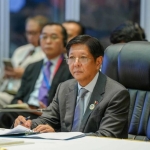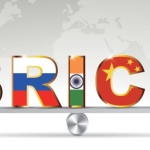
The Chinese Embassy in Manila has severely condemned the United States and other Western nations in supporting the Philippines in the current South China Sea conflict, which occurred on August 19, 2024. After their criticism of China’s policies against Philippine maritime activities, the embassy charged these countries of encouraging conflict and raising tensions in the region.
South China Sea Incident
Two Philippine Coast Guard (PCG) vessels, BRP Bagacay and BRP Cape Engano, reportedly incurred damage after running into China Coast Guard vessels. Quickly denouncing China’s “dangerous actions,” the U.S. claimed that the Philippine activities in the South China Sea (SCS) were legal. Reflecting this posture, many other countries—including Australia, Canada, France, Japan, Germany, and the United Kingdom—also expressed great concern over the claimed collision and advised respect of international law, especially the United Nations Convention on the Law of the Sea (UNCLOS).
China’s response consists in allegations and questions.
In a statement released on Wednesday, the Chinese Embassy in Manila sharply attacked these countries, particularly the U.S., for their quick alliance with the Philippines. The embassy questioned the factual basis and the evidence these nations relied on to criticize China, implying that their intentions could be questionable.
“Are their accusations against China founded?” the embassy asked, “on what factual basis and ‘concrete evidence'” It also chastised these nations for portraying themselves as self-appointed judges in the disputes involving the South China Sea, therefore casting doubt on their right to interfere in what China regards as a bilateral issue between itself and the Philippines.
Demand for Following the DoC and Non-Interference
The Chinese Embassy underlined that the United States and its allies are not parties to the South China Sea dispute, so they have no power to interfere in marine issues between China and the Philippines. These nations were urged by the embassy to quit acting in ways that may cause conflict and disturbance of the region.
Referring to the 22-year-old Declaration on the Conduct of Parties in the South China Sea (DoC), the embassy stated this framework should direct behavior in the area. It concentrated on Article 5 of the DoC, which forbids participants from acting in such way as it would worsen problems and endanger stability and peace.
Keep Reading
Uninhabited Reefs and Divergent Claims
The embassy also stressed the issue of Xianbin Jiao, an uninhabited coral in the South China Sea, stressing that it should remain vacant and without facilities. The embassy asked whether the countries dismissive of China knew of the truth on the ground and accused them of ignoring it.
“And why do they continue in spreading discord and fuelling tensions if they really care about peace and stability in the South China Sea?” The embassy asked, implying that the policies of these countries run counter to their claimed aim of maintaining regional peace.
China’s Will for Communication
Notwithstanding the concerns, the Chinese Embassy emphasized China’s will to resolve maritime problems with the Philippines by means of negotiations and consultation. The embassy hoped the Philippines would follow its word, avoid policies meant to aggravate the issue, and work with China to maintain maritime peace.
“We hope the Philippines will honor its commitment, earnestly observe the understandings and arrangement reached with China, refuse from acting that may complicate the situation, and work with China to get the situation at sea under control,” the statement stated.
Eventually
The most recent dispute in the South China Sea and the diplomatic fallout that follow emphasize the ongoing tensions in that region. Even while the Philippines negotiates its maritime disputes with China, foreign countries like the United States and friends complicate matters. Both sides are convinced about their points of view, hence the path to a peaceful conclusion is yet unknown and more conflict is quite likely. The world community will be closely monitoring how this scenario turns out and whether diplomatic efforts can stop the aggravation of circumstances.






























